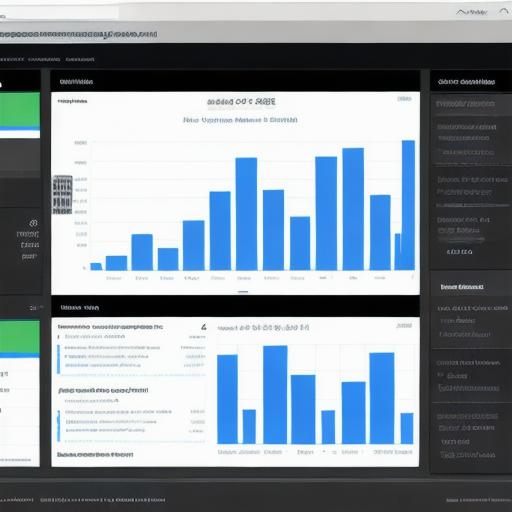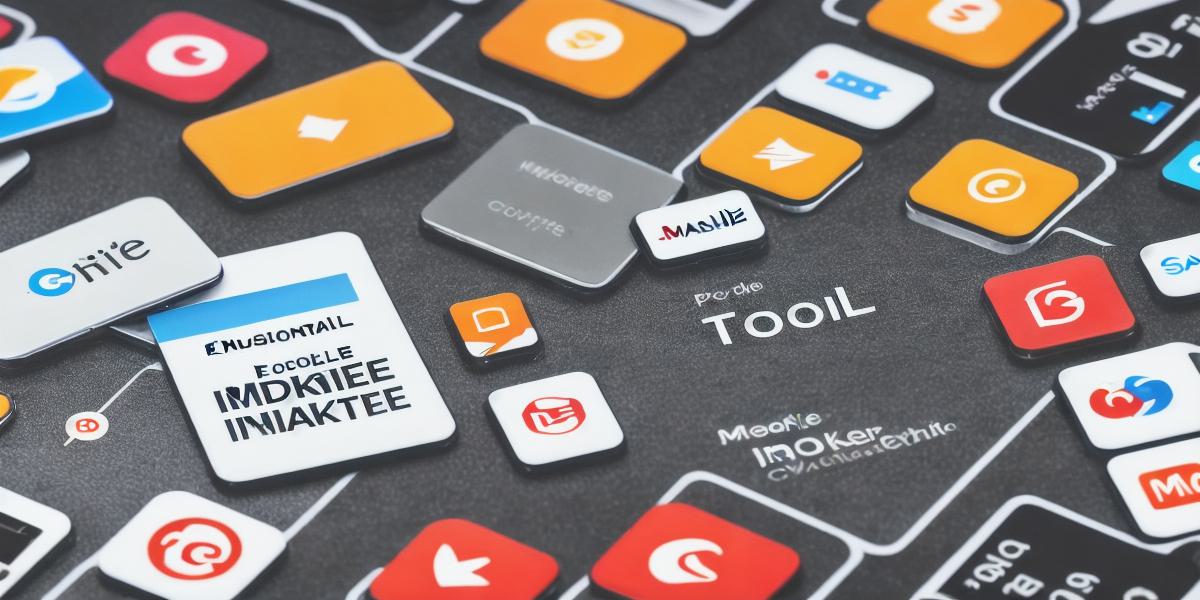Introduction
Marketing is a crucial aspect of any business, and it involves a variety of tools that are essential for success. In today’s digital age, marketers have access to a vast array of marketing tools that can help them reach their target audience, track their campaigns, and measure their ROI. However, with so many options available, it can be overwhelming for marketers to know which tools to use and how to use them effectively. In this comprehensive guide, we will explore the essential marketing tools that every marketer should know and provide tips on how to optimize your marketing efforts.
- Social Media Marketing
Social media platforms such as Facebook, Instagram, Twitter, and LinkedIn are powerful tools for reaching and engaging with your target audience. These platforms allow you to create a business profile, post content, and interact with your followers in real-time. Social media marketing can be used for brand building, customer acquisition, and lead generation.
To optimize your social media marketing efforts, it is important to develop a social media strategy that includes defining your target audience, setting goals, and creating engaging content that resonates with your followers. It is also important to track your metrics and analyze your results to ensure that your campaigns are delivering the desired ROI.
- Search Engine Optimization (SEO)
Search engine optimization (SEO) is the process of optimizing your website to rank higher in search engine results pages (SERPs). This involves a variety of tactics, such as keyword research, on-page optimization, and link building. SEO is crucial for driving organic traffic to your website and improving your search engine visibility.
To optimize your SEO efforts, it is important to conduct thorough keyword research to identify the terms and phrases that your target audience is using when searching for your products or services. You should also focus on creating high-quality content that includes relevant keywords and ensures that your website is structured in a way that makes it easy for search engines to crawl and index.

- Content Marketing
Content marketing involves the creation and distribution of valuable, relevant, and consistent content that attracts and retains a clearly defined audience. This can include blog posts, videos, infographics, e-books, and more. Content marketing is an effective way to build brand awareness, educate potential customers, and drive conversions.
To optimize your content marketing efforts, it is important to develop a content strategy that aligns with your business goals and target audience. This includes identifying the types of content that will resonate with your audience, creating a content calendar, and promoting your content through social media, email marketing, and other channels.
- Email Marketing
Email marketing involves sending targeted messages directly to potential customers in order to build relationships, promote products or services, and drive conversions. This is an effective way to reach people who have already shown interest in your brand and to keep them engaged with your content.
To optimize your email marketing efforts, it is important to develop a clear understanding of your target audience and their preferences when it comes to receiving emails. You should also focus on creating personalized, engaging content that is relevant to each recipient and includes calls-to-action that encourage them to take action.
- Pay-Per-Click Advertising (PPC)
Pay-per-click advertising (PPC) involves placing ads on search engine results pages or social media platforms in order to drive traffic to your website. This can be an effective way to reach people who are actively searching for your products or services and to generate immediate traffic and conversions.
To optimize your PPC efforts, it is important to conduct thorough research to identify the keywords and phrases that your target audience is using when searching for your products or services. You should also focus on creating compelling ad copy that resonates with your audience and includes relevant calls-to-action.
- Analytics and Reporting
Analytics and reporting tools are essential for measuring the success of your marketing efforts and identifying areas for improvement. These tools can provide insights into everything from website traffic to conversion rates, allowing you to track your metrics and optimize your campaigns for maximum ROI.
There are many different analytics and reporting tools available, including Google Analytics, Adobe Analytics, and Mixpanel. When choosing an analytics tool, it is important to consider the specific needs of your business and the metrics that are most relevant to your goals.

Case Studies: Real-Life Examples of Effective Marketing Tools
- HubSpot: HubSpot is a comprehensive marketing, sales, and service platform that provides a range of tools for businesses of all sizes. Their inbound marketing approach has been proven to be highly effective, with many case studies demonstrating the success they have achieved for their clients.
- Hootsuite: Hootsuite is a social media management tool that allows marketers to manage all of their social media accounts from one platform. Their dashboard provides real-time analytics and reporting, making it easy to track your metrics and optimize your campaigns for maximum ROI.
- Mailchimp: Mailchimp is an email marketing platform that provides a range of tools for creating, sending, and tracking emails. They have over 12 million customers and have helped many businesses achieve their marketing goals through targeted email campaigns.
Comparing Marketing Tools: Which Tools are Right for Your Business?
When choosing marketing tools for your business, it is important to consider your specific needs and goals. Some tools may be better suited to certain industries or business models than others. Additionally, some tools may be more cost-effective than others, depending on the size of your business and the scale of your campaigns.
It is also important to keep in mind that no single tool can do everything. Many successful businesses use a combination of different marketing tools in order to achieve their goals. For example, a small business may use social media advertising to drive traffic to their website, while a larger enterprise may use PPC advertising and content marketing to generate leads and conversions.
FAQs: Answering Common Questions About Marketing Tools
- What is the most effective marketing tool?
There is no one-size-fits-all answer to this question, as the most effective marketing tool will depend on the specific needs and goals of your business. However, many marketers find that social media advertising and content marketing are highly effective for building brand awareness and generating leads. - How much should I budget for marketing tools?
The amount you should budget for marketing tools will depend on the size and scale of your business. Small businesses may have a limited budget and may need to focus on cost-effective tools such as social media advertising, while larger enterprises may have more resources to invest in a range of different tools. - What is the best way to measure the success of my marketing efforts?
The best way to measure the success of your marketing efforts will depend on the specific metrics that are most relevant to your goals. This can include everything from website traffic and conversion rates to social media engagement and email open rates. It is important to track these metrics regularly in order to optimize your campaigns for maximum ROI. - Can I use multiple marketing tools at once?
Yes, many businesses use a combination of different marketing tools in order to achieve their goals. This can include using social media advertising and content marketing in conjunction with email marketing and PPC advertising. The key is to choose the tools that are most effective for your business and to optimize your campaigns for maximum ROI.
Summary
Marketing is an essential aspect of any business, and there are many different tools available to help you achieve your goals. By understanding the essential marketing tools that every marketer should know and how to optimize your efforts, you can drive traffic, generate leads, and increase conversions for your business. Whether you are a small business owner or a marketing professional, by staying up-to-date with the latest trends and tools, you can achieve success in today’s competitive marketplace.




